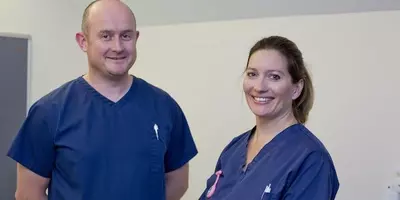 How has Nursing in Ireland changed?
How has Nursing in Ireland changed?3 Jul 2018 ● Stasia MacDermott, Clinical Manager
How has Nursing in Ireland changed?
Stasia MacDermott considers just how the Irish Nursing profession has changed since she first qualified.
When I entered the Nursing profession, the selection criteria were based on minimum entry qualifications and interview. I had exceeded the minimum entry requirements, but I knew the interview was really the potential obstacle.
The religious orders were still largely running Irish hospitals, so I would be interviewed by nuns with the minimal assistance of lay people.
The landscape of healthcare has changed considerably since then.
Selection criteria is now, through a central application process of points, accrued from the final school exam.
It is my view, that face to face interview does still serve a role in assessing suitability of candidates for the nursing profession.
However, with the increasing complexity of treatments in modern healthcare, academic ability is paramount.
Evidence based practice plays an integral role in modern nursing, but the delivery of this care must be done in an empathetic way.
During my interview, I could convey my desire to help people who were sick and unable to help themselves.
This remains the overarching drive within my current role as clinical manager of a community based nursing service.
Within my role, I am responsible for the clinical assessment of community based clients, and the coordination of their care plans.
I am involved in the recruitment, training and supervision of nursing and auxiliary staff and involved in policy and procedure development, and the continuous professional development requirements of staff.
I enjoy reviewing clinical guidelines and updating as required.
There are many challenges facing the nursing profession over the next five years, and indeed farther into the future.
Staff retention remains the biggest challenge due to a myriad of reasons.
Whilst low salary scales remain a great concern for nurses, particularly in urban areas, other issues have significance.
Chronic understaffing reduces the nurse's ability to deliver high standards of healthcare, and causes great personal stress.
The delivery of high standard healthcare requires a mix of experience. It is concerning when staffing does not reflect this mix.
Retaining these nurses continues to be a challenge.
Accessing opportunities for further education should be facilitated and indeed encouraged; it is my view that professional development should be compulsory within the context of an ever-changing healthcare environment.


